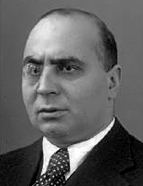

Whether in the História Geral da Civilização, at the beginning of his career, or later, in the História da Cultura Medieval or in his História Moderna e Contemporânea, he raised the problem of periodization against the different systematizations of history: he commented on Nietzsche, discussing the problem of the selection of facts and calling attention to the new methodologies in the study of civilizations; he analysed medieval and modern conceptions of the world and of mankind, their economic and social aspects, the political and juridical characteristics, their religious, artistic and literary tendencies; he discussed the continuities and the ruptures, the quantitative and qualitative transformations in the location and scale of phenomena, their repercussions and projection in the field of ideas; he questioned the possibilities of a global history in the face of national histories; he deepened concepts and tackled themes such as the problem of historicism, the question of subjectivity and objectivity, the problem of the interdependence of historical phenomena.
The critical exploration of the various theses on the formation of modern nationalisms and imperialisms made up a substantial part of his lectures, as he devoted special attention to the formation of national awarenesses and to the appearance of the concept of the fatherland, while taking in the theory of nationalities and the conceptions of empire, and their theorizers. The concept of the “morphology of cultures” and the critical exposition of various theories of the life and death of civilizations reflected the polemic around a cyclical conception and the concept of decline defended by Spengler, whom he refuted in his doctoral essays, and the challenge and response model of Arnold Toynbee.
His admiration for the role elites seen as a “creative minority” was particularly in evidence in a lecture he delivered at the Lisbon Geographical Society, on 12 November 1955. The occasion was to commemorate the centenary of the birth of Mouzinho de Albuquerque, regarded by the speaker as an “epic hero”, not merely a warrior, but “a representative of culture in the face of the tumultuous forces of nature and savagery, and a definer of ideas and of cities” (p. 17).
